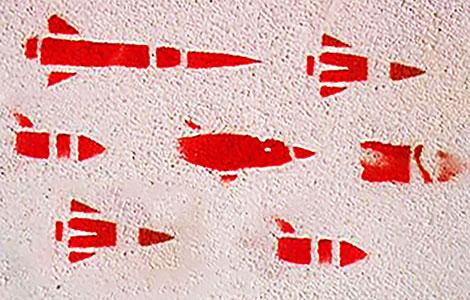In 1990 I got posted to Binnaguri. Binnaguri is located in North Bengal with tea gardens all around. Binnaguri military station is a sprawling complex housing a complete division. Probably it was the only station which had three mountain brigades, one arty brigade, all Div troop units and two animal transport companies at one complex. We had all the facilities in terms of a golf course, swimming pool, tennis court, club, picture hall etc. Those days there was no TV, All India radio did not reach Binnaguri, no cable TV, forget about mobile phones no STD telephones. We had Kendriya Vidyalaya with no teachers in science stream. Our children used to play outside during the science class hours. Grass used to grow at the rate of 6 inches per day. One could not complete the grass cutting especially at the golf course. On top of it, we had a GOC from Gorkha Rifles the then Maj Gen P S Bammi. I need not say anything more for those who knew him. Within a week of my joining, with full battle load the complete division had a 90 km route march from Binnaguri to Coronation Bridge. People still talk about Ex Shah Sawar.
Since there was nothing better to do, lot of emphasis was on training, professional and sports competitions and regimental functions. Buddha Baba was the favourite hooch.
I was posted as Sparrow of Shakti Vijay Brigade. Brig Inder Aggarwal from Rajput Regiment had just taken over the command of the brigade from the then Brig and later Lt Gen Johnny Mukherjee. In my service, I have not seen a better soldier than Johnny Mukherjee. In a neighbouring brigade we had two Rajput battalions – 22 and 27. Inder Aggarwal commanded 22 Rajput earlier. He became the local Col of both the battalions.
22 Rajput was also commanded by handlebar moustached Lt Gen Mukesh Sabharwal. He was my Corps Commander at Srinagar when I was a Sparrow at 15 Corps. I had the unique experience of partnering him in a doubles semi finals in a tennis tournament in Srinagar and ended up winning against much younger opponents. But let me not digress. In OP Rhino I had the privilege to work with 22 Rajput. P K Singh (later Maj Gen), Ravi Jhaldiyal (probably a Maj Gen now) and others were great guys to work with. I’ll leave this story for another day.
16 Sikh Li was part of our brigade. It was commanded by Col (later Brig) Ranjeet Singh. He came to command the unit after a tenure as AQMG at IMTRAT. It is very difficult to find a more resourceful person than him. The then Lt Col Bikram Singh, later COAS came as 2nd in command of the unit. Lt Col Bikram Singh was physically very fit and tough and led his troops in BPET. I had an opportunity to be with 16 Sigh Li at Dukhey Dzong in Bhutan during training. I shall share my experience with Ranjeet Singh and his paltan sometime later.
It was adam inspection of 16 Sikh Li. The regimental dinner night was the last event. You could trust Col Ranjeet Singh, it would be a gala affair. With full regimental regalia everything was rehearsed to the perfection. With every course of the meal, a different tune was played by the band. It was perfectly synchronised. When everything was over I asked him how did he manage the exquisite timing? He was gracious enough to show me the switch under his table where he sat by which he used to ring a bell to the band for the next tune to be played!
When we came out of the dinning hall at the open lawn, it was the last event. The head of the military band gave a smart salute to the Brigade Commander and requested him for a tune which they will play. Somehow I think Brig Inder Aggarwal had a soft corner for me. He turned towards me and said it is Sparrow’s choice.
I am not a musical person. I had no idea about tunes to be played by a military band, I only knew Sara Jahan se Accha, Deshon Ka Sartaj Bharat at the most Colonel Bogey. I was stumped. Suddenly something struck me, I had heard somewhere the words Amazing Grace. I blurted out Amazing Grace. Brig Inder Aggarwal paused, took out the pipe he was smoking, gave me a benign smile and told me how did I know that it was his favourite tune as well?
Every Military band in Indian Army knows Amazing Grace backwards and the band of Sikh Light Infantry Regiment played Amazing Grace. It was surreal atmosphere.
P.S. Much later after my tenure at Baramula, I was posted as OC Junior Wing at MCTE Mhow looking after the young officers' training. I used to take the class of military music myself, starting with this episode. I made a handout on military music which used to be given to every young officer of the Corps of Signals. Later, in 2012, I had the privilege of visiting AEC Centre and School Panchmarhi. As per me this is the only Cat A establishment which has incorporated latest technology in all their curriculum. The way music is being taught to the musicians of the three armed forces is a treat to watch. But then they are under disbandment which is another story.





